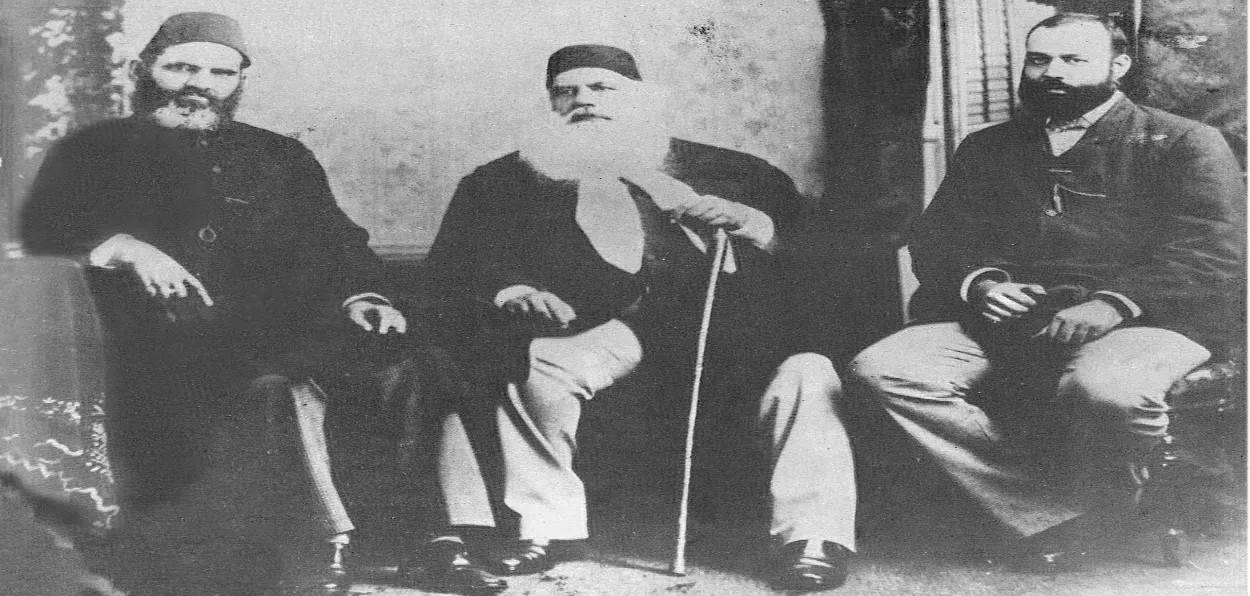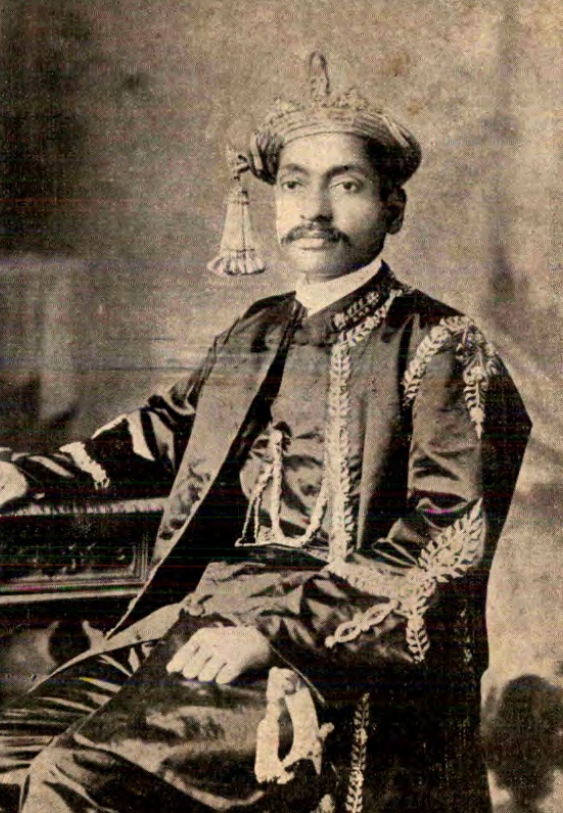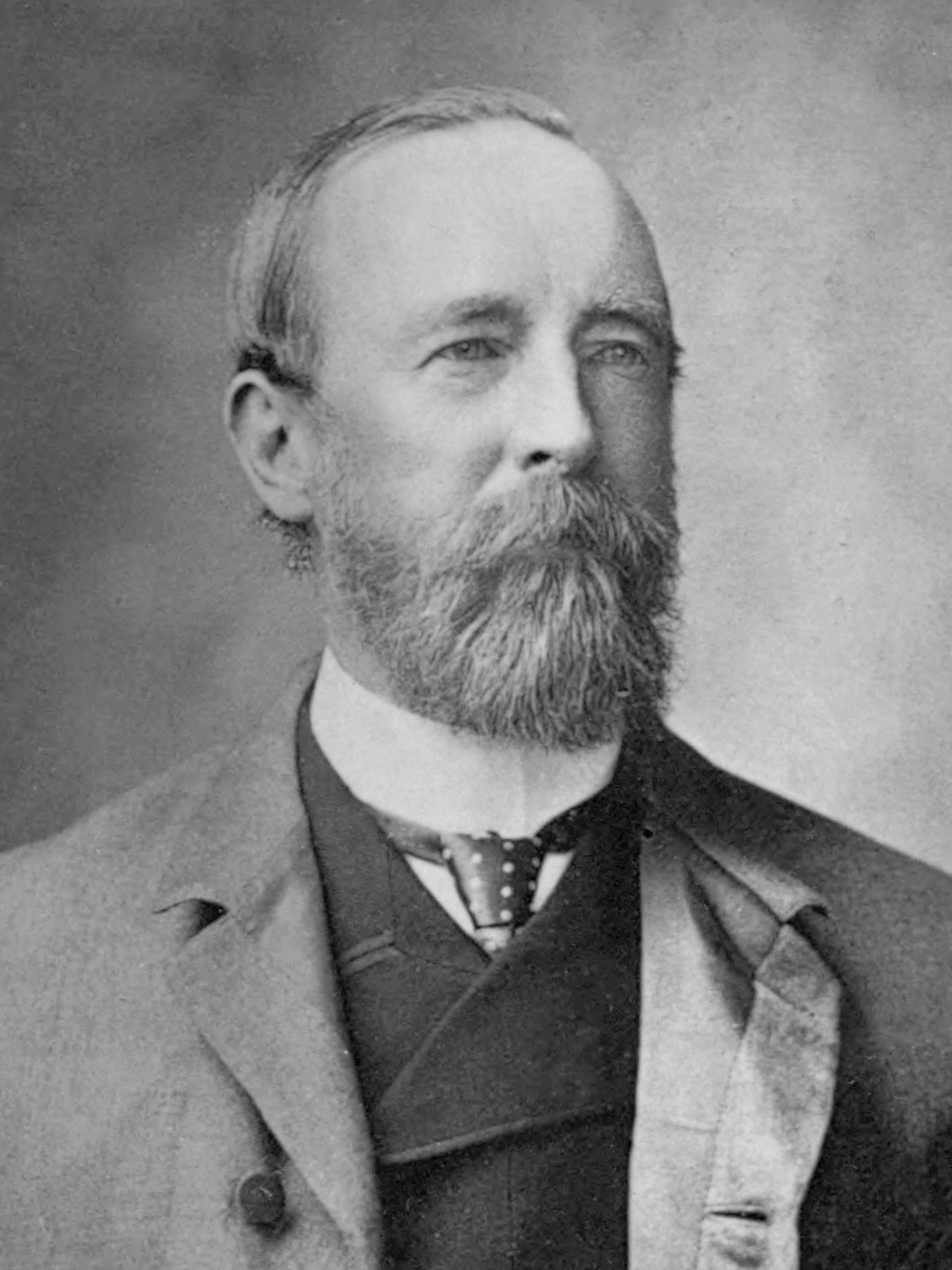
Saquib Salim
“The Conversation between Maulvi Fariduddin and Ram Bakhsh, which is being circulated among the masses, adopts a very different tone….. It is in the form of a dialogue between a High Court pleader and a villager, to whom the former explains how all the evils that the peasantry suffer should be attributed to the form of Government now existing and will disappear if it is reconstituted on a popular basis. There can be no doubt that such writings constitute a most serious political danger…. The only idea that denunciations of Government and assertions that it is the cause of their poverty and all their other misfortunes can convey to their minds is that what is necessary is a general rebellion and the destruction of every European in the country."
These words were written by Udai Pratap Singh, Raja of Bhinga, in 1888.
What was this conversation between Maulvi Fariduddin and Ram Bakhsh? Why was it considered dangerous for the British colonial rule in India?
The pamphlet in question was published by A. O. Hume led the Indian National Congress (INC) in 1887. It was a fictitious conversation between Maulvi Fariduddin, a Congressman, and Ram Bakhsh, a peasant from a fictitious village Kambakhtpur. The INC was formed only three years ago under the guidance of A. O. Hume and these pamphlets published in vernacular languages rang alarm bells in the ears of the colonial authority. The content was supposed to be anti-British, which would lead Indians to revolt against colonial rule.

Udai Pratap Singh, the Raja of Bhinga
Unsurprisingly, loyalists of the British government in India came out in public to denounce the pamphlet. An association named the United Indian Patriotic Association (UIPA) was formed under the leadership of Sir Syed Ahmed Khan, which had Hindu and Muslim loyalists, to oppose INC’s propaganda against the British Empire.
It is noteworthy that most historians dismiss the period from 1885 to 1905 as the pacifist phase of the INC. During the period, it is argued, the INC leadership did not challenge the British empire and focused on petitioning to win small concessions. However, the panic around the aforementioned pamphlet clearly shows that the INC was already preparing for a revolutionary war against the empire.
Theodore Beck, the Principal of M.A.O College at Aligarh, served as the editor of the UIPA. He described the pamphlet, “It represents a hypothetical conversation between a Congresswalla (a Maulvi!) and a peasant. The Congresswalla points to the difference in prosperity between two villages —one Shamshpur, which is owned jointly by the villagers, and another Kambakhtpur, owned by an absentee Raja. The former is said to typify India as it would be under a native representative government, and the latter is India as it is under British rule. A vivid contrast is drawn between the prosperity of Shamshpur and the misery of Kambakhtpur. Every misfortune from which our poor peasants suffer, whether removable by the Government or beyond the resources of human power to cure the poverty, the extortions of the money-lender, the oppression of the police, the ill effects of canal water are described with studied accuracy as ruining Kambakhtpur, while from all of them, Shamshpur is free.”
The pamphlet not only pointed at the atrocities by the British government it also established that the spirit of India lies in Hindu-Muslim unity. India is a land where Mualvi Fariduddin and Ram Bakhsh care for each other’s interests.
The pamphlet, allegedly written by A. O. Hume in English, was translated into several Indian languages like Urdu and Hindi. Lakhs of its copies were distributed among the masses of India thus making them aware of the excesses by the English rulers.
The pamphlet described an English collector’s deeds graphically. It reads:
Rambaksh :- "Remember him? Ram, Ram, 'uska nam mut lo (don't mention him); I bear his marks now (where I can't show them to you, Maulvi Sahib), though it is twenty years ago. You see, his lashkar (camp) came to our village. There was no grass for the horses; the Collector shouted to the Tahsildar, who said Rambaksh was responsible. 'Oh, 'said the Sahib, striking me with his whip. You are the son of a pig, the misbegotten (suar ka bacha, haramzada). I'll teach you how to attend to orders. Here, khlassi (tent-pitcher), ties him up and gives him thirty baints (blows with a cane), and lays it well on. 'Now the Tahsildar had never spoken a word to me about the matter. I tried to explain this, " but the Sahib hit me over the mouth and face with his whip, shouting out hold your tongue. I'll teach you! Tie him up, tie him up, flog his life out; 'and I was dragged away and flogged till I became insensible. It was a month before I could walk. Yes, he was a bad one; many Collectors have I known some good, some indifferent but this was the only real devil.”
 A O Hume
A O Hume
Sir Syed Ahmed Khan, convenor of UIPA, said about the pamphlet and the INC, “Can they (Congress) deny the fact that they have left no stone unturned in their attempts to spread discontent among the common people against the (British) Government? Are not The Star in the East, The Tamil Catechism, and the Conversation between Fariduddin and Rambakhsh, in which many statements are false while real facts are placed in the wrong light, as well as many other of their speeches and writings, sufficient proof? If it is true that thousands of copies (the Hindustani newspaper says lakhs) have been printed in Urdu and Hindi, and circulated in the Provinces.”
Munshi Imtiaz Ali, legal advisor of the association of landlords of Awadh, himself presided over a large public meeting in Lucknow in opposition to Congress and the pamphlet. He compared the intention of the INC’s pamphlet with that of the revolt of 1857. It was written, “I have the greatest fear that by the widespread circulation of this book and by the methods of the National Congress a great mutiny will arise. I speak as one who remembers how we were looted, first by the mutineers and next by the British troops….. I appeal to the Government to protect us from a repetition of such horrors. The effect of the Mutiny of 1857 was limited to the N.W.P and Oudh, but if from the doings of the National Congress any mutiny arise, it will spread all over India.”
Choudhri Nasrat Ali, a taluqdar of Awadh, also expressed a similar opinion. He wrote, “The notorious pamphlet published in English and Urdu….. gives some idea of the emphatically disloyal sentiments entertained by the founder of the National Congress and his coadjutors, who, by constantly fanning the flame of rebellion, are trying to produce a general conflagration which will envelop the whole of India, and which it will be difficult to suppress or extinguish.”
Nasrat further commented, “From beginning to end the pamphlet is a uniform and persistent attempt to show that the Government of India is an oppressive despotism and that the native population must oppose their oppressors, might and main.”
ALSO READ: Kehkashan's Hosla handholds abandoned and neglected humans
There was no doubt in the minds of UIPA members over the intention behind the pamphlet and Congress leadership. The report read, “The pamphlet endeavours to excite the hatred of that "terrible swarm of locusts," i.e., the great mass of ignorant cultivators and rude villagers against the British Government, by telling them that they are being ruined by enhanced rent and increased taxation on land. Of course, the object aimed at is to make them hate the Government as a cruel despotism; and extremely foolish as they are, it is easy to make them believe such foolish things.”
